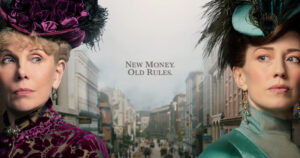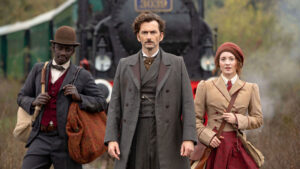With the disgusting invasion of the Ukraine by Russia, a number of politicians ordered banning the sale of vodka produced in Russia. I’d like to talk about that today. I’m more of a whiskey and gin drinker but before covid one of my favorite neighborhood hangouts was Sub-Zero Vodka bar.
The thing I’d like to address today is if banning the sale of Russian Vodka is an appropriate response by various parties, the government, a tavern, my friends, and myself. It’s an interesting question for a Libertarian from the perspective of its legality and usefulness.
How I met Imperia and Hammer and Sickle Vodka
Ah, the good old days of Sub-Zero. My favorite bartender, Cailyn, introduced me to two premium vodkas, Imperia and Hammer and Sickle. Both are produced by Russian Standard. They accurately belong in the category of actual Russian vodka, unlike many of the brands being boycotted.
I spent many a pleasant hour snuggled up to the second bar sipping on icy-cold Imperia, or Hammer and Sickle when the aforementioned wasn’t in stock. The second bar because the ice top to the main bar proved more of a nuisance than a benefit, and the side bar was generally Cailyn’s station.
What if Sub-Zero was Still Open?
Sadly, Sub-Zero closed but what if I could still walk over? Would I order an Imperia? Do I think the mayor of St. Louis or the governor of Missouri should ban Russian vodka? Should the owners of Sub-Zero refuse to sell the vodka?
As complex as the question might be, my answer is pretty simple. I’d find a Ukrainian vodka to drink. That being said, if the owner continued to sell Imperia and Hammer and Sickle, I’d still patronize that establishment. I suspect, knowing what I know, they would likely stop selling it but that’s their business. I also wouldn’t give anyone else a dirty look or yell at them if they chose to order Imperia or Hammer and Sickle.
One of the important lessons I learned in my four years at the University of Idaho was not to criticize the way someone else goes about their business.
On the other hand, there is no way local, state, or federal government needs to get their sticky hands involved in the situation. It’s just not the business of government to tell me which vodka to drink or a business owner which vodka to sell.
This is what small government means. Sub-Zero can refuse to sell a brand of vodka or refuse to let me in if I’m not wearing a mask. They are a private business and the government has no business telling them what they can or cannot sell or telling them how to enforce a dress code.
What if Russian Standard hates Putin?
This is an important question. What if the owners of Russian Standard oppose Vladimir Putin and his amoral war? What if by not drinking their vodka, I actually help Putin by bankrupting those who oppose him?
This is the general problem with feel-good boycotts. When a boycott becomes some Cause Célèbre it ends up hurting many of the people it is designed to help. Meanwhile the self-righteous boycotters pat themselves on the back for a job well done. It’s a false sense of doing good when often you’re doing harm and it’s prevalent on both the Republican and Democrat sides of the aisle.
Conclusion
It’s entirely possible by not drinking Imperia or Hammer and Sickle I might be hurting a manufacturer that doesn’t support Putin. It’s also possible they are ardent Putin backers. I don’t know and I don’t care. I find what’s happening to be disgusting and wrong and I’m not drinking Russian vodka because of it.
Maybe I’ll never drink another glass of Imperia or Hammer and Sickle. That’s my business, not yours and not the government’s.
Tom Liberman





